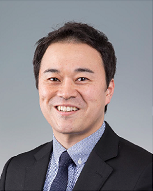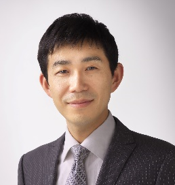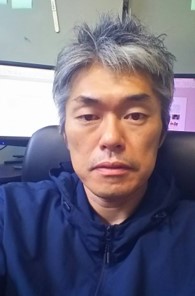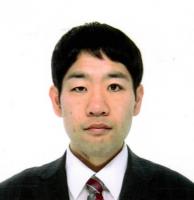Research | Our younger experts
Our younger experts
-

Electrochemical devices for bioanalysis and biofabrication
We have reported papers on electrochemical devices for bioanalysis and biofabrication. -

Novel biomedical technologies for fall prevention
We aim to collaborate to develop novel biomedical technologies for fall prevention and translate research outcomes to the society. -

Electron spin wave for new information carriers
Prof. Makoto Kohda received his Master’s degree in engineering in 2002 and Ph.D degree in engineering in 2005 from Tohoku University, Sendai, Japan. He has been working on spin Esaki diode for electrical spin injection to semiconductors based on a p+-(Ga,Mn)As / n+-GaAs structure. After his PhD degree, he was an assistant professor (2005- 2010) and is an associate professor from 2010 at Department of Materials Science in Tohoku University. He is working with spin-orbit interaction in III-V semiconductor heterostructures towards quantum and topological information technology and also working with epitaxial metal systems for efficient spin generation and magnetization reversal. In 2014-2015, he was a visiting researcher in IBM Zürich laboratory (Switzerland) for time-resolved Kerr rotation microscopy in semiconductor quantum wells. His current research interests are helical spin waves generated by spin-orbit interaction in III-V semiconductors for spintronic devices with low-energy consumption and quantum information technology. Also, he is interested in epitaxial growth of heavy metals towards efficient spin current generation and magnetization switching by spin-orbit interaction. -

Design of novel shape memory alloys and their applications
We are working on novel shape memory alloys. In particular, we aim to develop Fe-based shape memory (or superelastic) alloys through alloy and microstructural designs. Our interest includes their applications in a wide range of fields even as a large-scale structural material. -

Plasma physics, technologies, and space propulsion
Dr. Kazunori Takahashi received the Master’s and Ph.D degrees in electronic engineering from Tohoku University, Sendai, Japan, in 2004 and 2006, respectively. From 2004 to 2007, he was a research fellow of Japan Society for the Promotion of Science. In 2006-2007 (for a few months) and 2010-2011 (for a year), he was a visiting researcher at the Research School of Physics and Engineering, the Australian National University, Canberra, Australia. From 2007 to 2013, he was an Assistant Professor of Iwate University, Morioka Japan. From 2013 to present, he is an associate professor of Tohoku University, Sendai Japan. His current interests include the experimental studies on laboratory experiments on fundamental plasma physics, especially a plasma expansion in a magnetic nozzle, the development of the RF plasma thruster, and the development of the RF plasma system for space and industrial applications. -

Novel Ultrasonic Nondestructive Evaluation Technologies for Sustainable Society
Associate Prof. Yoshikazu Ohara received his Ph.D. in engineering in 2007 from Tohoku University, Sendai, Japan. After his Ph.D., he was a postdoc (2007-2008) and an assistant professor (2008-2017). He is an associate professor from 2017 at the Department of Materials Science and Engineering at Tohoku University. He was an invited visiting researcher at Los Alamos National Laboratory (USA) in 2013, 2014, 2015, and CEA (France) in 2012. He has been developing novel ultrasonic measurement technologies and applying them to nondestructive evaluation (NDE) and materials characterization for a sustainable society. -

Novel Shape Memory Alloys with Multifunctional Properties
Dr. Xiao Xu received his Master’s degree in 2010 and Ph.D. degree of engineering in 2013 from Tohoku University, Sendai, Japan. From 2012 to 2013, he received the research fellowship from Japan Society for the Promotion of Science for the study on anomalous martensitic transformation behaviors at cryogenic temperatures in NiMn-based shape memory alloys. Then he worked as a postdoctoral researcher from 2013 to 2016, focusing on mechanical and physical properties of steels and carbides by first-principles calculations. He was a project assistant professor (2016 – 2018) and is now an assistant professor at Department of Materials Science in Tohoku University. One of his current research is the development of novel shape memory alloys with multifunctional properties. This covers the topics of magnetic actuators, magnetostrictive materials, biomaterials, and elastocaloric and magnetocaloric materials for the solid-state refrigeration techniques.